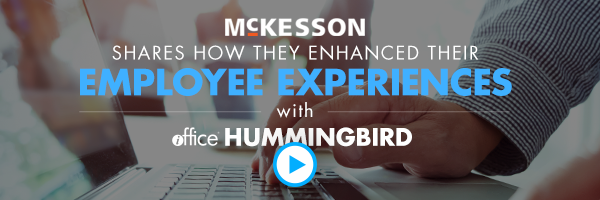What to Do When Social Media Causes Problems for Your Workplace


With the lines between work and personal life getting blurrier each day, platforms like social media can become an issue for workplaces. Where is the line drawn between privacy rights and company infringement? How do you address an issue that’s on a “private” page yet the entire world can see? It’s a difficult trail to treck, and since it’s so new many possible situations haven’t yet been experienced enough times to provide a base for future issues. Here’s our take on navigating the tricky social media issues that can arise at your office.

1) Damage to Your Office’s Reputation
While the thought of an employee ranting on about your workplace’s blank walls or frigid temperatures are enough to get you shivering, remember, they actually have the legal right to do so. According to the National Labor Relations Act (NLRA) employees are protected and free to discuss working conditions and their own personal employment terms both inside and outside their organization. This includes: 
- Complaints or criticisms about management
- Labor disputes
- Working conditions
- Safety concerns
An employer is never permitted to terminate any employee based on their expression of the above protected activity. This may seem like terrible news, but it actually isn’t. If you notice complaints about your workplace environment online from your workforce or otherwise, use this as motivation to fix the issues they’re complaining about! It’s the best feedback you could ask for. Collect any examples of complaints and use them in your pitch to the C-Suite for office renovations, or for the adoption of an IWMS. Your C-Suite is much more likely to listen to your ideas if you have proof other employees feel the same way, and are openly talking about it online.
There is a negative side to this as well. If an employee posts something about their employer that does not align with the company’s values or beliefs, the employer may have the right to take action. This area can get gray pretty quickly, and it’s very important that you explain your organization’s expectations when hiring new team members. Also, any posts that are malicious or threatening in nature are not protected under this act and should be dealt with immediately, bringing us to the next topic.
2) Harassment or Bullying
This is an entirely different issue and is really not up for debate, as threats made between coworkers or anyone on your property should never be tolerated. However, this issue is usually more prevalent in college campuses, in which administrators should be responsible for monitoring and providing consequences to any offending parties. If this issue does arrive at your office, or you notice something on social media that you think could be illegal or harmful to another employee, seek the assistance of your human resources team immediately.
3) Using Social During Work Hours 
This has been a back and forth argument since social media became mainstream. Employers understandably don’t want employees wasting company time on social sites, while employees see this time as a much-needed break from their routine tasks. Studies support both arguments. On one hand, many studies show social media is a costly distraction that takes away valuable company time from the workforce. While studies such as this one prove that access to social media gives employees a spike in productivity when they do get back to work, and higher overall job satisfaction in the end which prevents burnout. We think it should be a balance depending on the nature of your business. Your workforce deserves breaks throughout the day, and whether that’s at the water cooler or on Facebook isn’t really for the employer to dictate. However, if retweeting is interfering with an employee’s ability to turn assignments in on time, or is distracting other employees from working – a talk should be had, preferably by that employee’s manager.
Prevent Problems in the Future
This is all about setting realistic and attainable expectations that both your workplace and your workforce can adhere to. One of the best first steps you can take (if you haven’t already) is creating a Social Media Policy for your office. It should include these things, but may include more items depending on the nature of your business and the type of product or service your facility provides.
Items a social media policy should include:
- Defined statement regarding the sites the policy covers
- What company data may and may not be disclosed
- If employees should identify as being employed by the company
- Disclaimer’s that may be used on behalf of the employee
- The company’s rights regarding removal of content
- The employee’s rights regarding of content allowed
If used and monitored properly social media can actually be a positive for your office. It increases visibility and brand awareness, and often allows employees to communicate in a more effective way while increasing their job satisfaction. But with any public space, there is potential for problems. As long as measures are taken to prevent miscommunication on either end, and expectations are set early on, you and your employees should be able to chirp (and tweet) about your awesome workplace in harmony.
